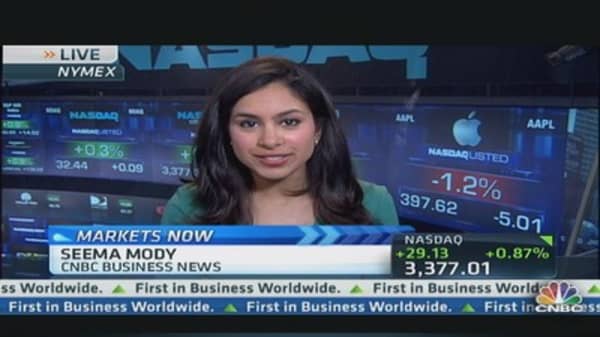When Microsoft first launched Bing, it was sort of a joke. But at least a joke gets repeated. After the initial hype, a lot of people just forgot about it. Now Bing is getting a second chance to make a first impression: It is integrated into the desktop search in Windows 8.1, and Apple has chosen it as the Web search tool for Siri, the iPhone's virtual assistant.
Yes, it's time to take the No. 2 search engine seriously.
Bing has been inching up lately, but it's an imperceptibly slow crawl. Last month, its share of core searches was 17.4 percent, said ComScore, up from 15.4 percent at the same time last year. Compared to Yahoo's 11.9 percent share—a figure that has been going down as steadily as Bing's has been rising—that's brag-worthy. But it's still a far cry from Google's 66.7 percent—a number that was exactly the same a year ago.
Stealing audience from Yahoo has been easy for Microsoft—winning over people who use Google has been harder, says Danny Sullivan, who, as founder of Search Engine Land, is one of the leading authorities on search engines.
"We turn to a search engine in the way we turn to a best friend," he said. The more advice you seek, and the more consistently good answers you get, the deeper the friendship grows and the less likely you are to seek outside opinions. "When someone else comes up and says, 'I've got some advice,' your response is, 'Who the heck is this?' "
Sullivan added, "You need Google to be letting you down in order to switch to Bing … and then Bing has to be really good."
As it happens, Bing is pretty good by most accounts.
(Read More: Microsoft Gives a Peek Into Windows 8.1)
When I took the Bing It On challenge—five searches that yield two sets of results, which you rate for helpfulness—Bing won by a nose. The real revelation is how close everything is, and how similar the basic search experience can be. (Go ahead, see for yourself.)
The Siri Switch
Before Apple brought Bing into Siri, Apple executives "switched to Bing to test quality," said Microsoft's Derrick Connell, corporate vice president for Bing. "They went through a lot of internal measurement to test our judgment." (Apple PR did not have a comment about the company's Bing testing, but also didn't refute Microsoft.)
More From NBC News:
Real-Life Super-Powered 'Exosuit'
Try it out: Windows 8.1 Preview Available Now
Rivals Microsoft, Oracle Team Up on Cloud Push
Apple isn't going whole-hog with Bing just yet. The default search engine for the Safari browser is still Google. Sullivan says that, after the Apple Maps meltdown, the iPhone maker is likely to ease into this with more care.
"If they shift Safari search over to Bing, people probably would be like, 'What is this? This isn't as good as Google. You're doing the whole Maps thing again!' But with Siri, they have the opportunity to throw Bing into the mix." When you do Web searches in Siri in iOS 7, you won't see any branding—you may not even know it's Bing.
In spite of that, Sullivan says that this is potentially a chance for Bing to gain new users. "It won't cause Google to plunge overnight, but it's an inroad for Microsoft where they're not just pulling away users from Yahoo."




